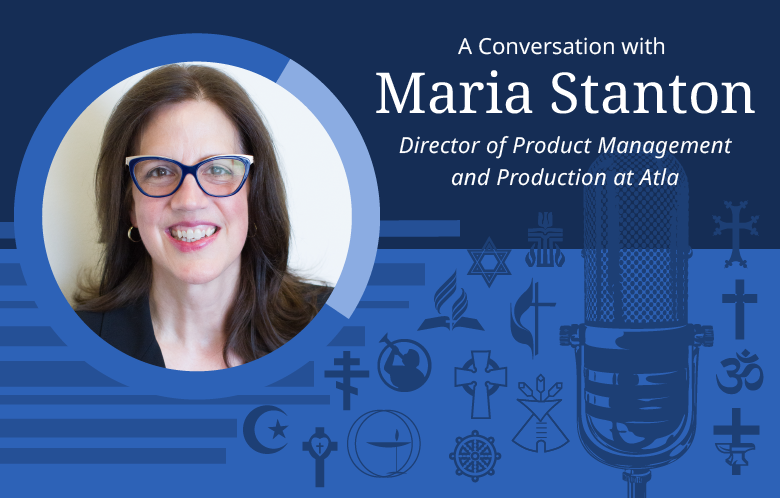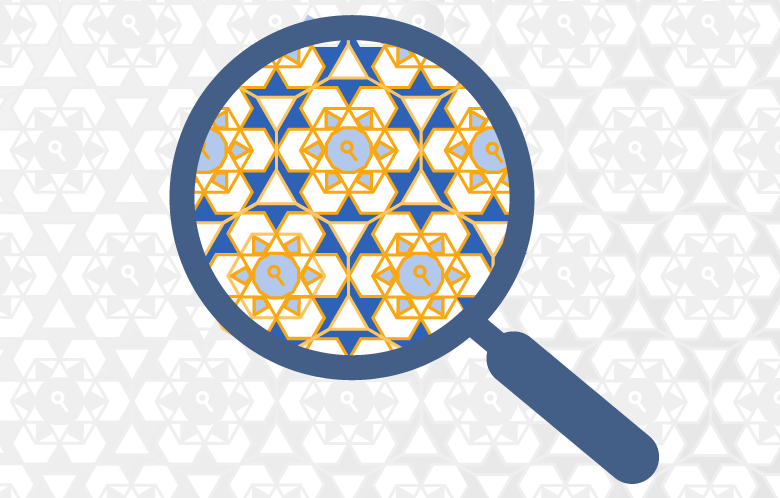Since its launch in 2018, AtlaSerials PLUS® (Atlas PLUS) has expanded its full-text content to include more literature from the Majority World, interdisciplinary coverage and research that is often underrepresented.
We recently had the pleasure of being able to sit down with Maria Stanton, Director of Product Management and Production at Atla, to discuss how Atla has been fulfilling their commitment to creating a more comprehensive view of religious studies through their databases. Maria and her team are responsible for the editorial quality and scope of Atla Religion Database® (Atla RDB®), as well as the full-text offerings AtlaSerials®, and AtlaSerials PLUS® (Atlas Plus).
This interview dives into the extended content offered in Atlas PLUS and Atla’s work in creating a more inclusive approach to religious scholarship. Join us as we learn more about the work Atla has done and will continue to do in the future.
Atla has continued to expand their resources with focuses on Asian studies, scholarship throughout Europe and Islamic studies. Are there other areas in which Atla is planning to focus on in the future?
We are committed to deepening our engagement with scholars from the Majority World from regions like Africa, Latin America, and parts of Asia that have been historically underrepresented in global scholarship. There are opportunities to strengthen and deepen that commitment. I would say that Africa is definitely a region where we want to build strong partnerships to add titles to Atlas Plus.
When we talk about the Majority World in global coverage, that covers all faith traditions. Titles that express a Catholic or Lutheran or even a particular evangelical perspective from a particular country in Africa or Asia are sought after by the global community for their research. They’re hungry for that larger perspective for scholars studying their faith traditions. So, when we talk about deepening our commitment to scholars from the Majority World, that's all-faith traditions.
How has your expansion of content in Atlas PLUS helped Atla move towards the goal of increasing full-text content that is inclusive and global in scope?
The Majority World and interdisciplinary studies are the two areas that we're really focused on. This effort helps fill a gap in the academic record and offers are more comprehensive view of global religious studies. By breaking down those traditional academic barriers, we allow for a more holistic understanding of research topics.
We include underrepresented research from areas such as Asian religions, Black theologies, Islam, Judaism, indigenous traditions, and women’s perspectives. Atlas PLUS now includes content from 49 countries – 17 of which are unique to PLUS – and content in more than 30 languages. It fills that gap and ensures that there’s discoverability and access to relevant content.
The interdisciplinary studies that intersect with religion include media, the arts, law, social sciences, natural sciences and other areas in the humanities. People are using this research to address real problems that we are seeing today, such as climate change or social justice. One example of this comes from students in medical school now will have a semester of whole person care which includes how to consider someone’s spirituality and how it plays into their health outcomes.
Atla believes that religion is everywhere. How do Atla resources, specifically Atlas PLUS, support this idea? What interdisciplinary content is available in Atlas PLUS to show this?
Religious literacy is essential across academic disciplines, not just within a dedicated religion department. Scholars from a wide range of fields, such as law, medicine, psychology, anthropology, environmental studies, and history, need a deep understanding of religion to fully grasp the complexities of their subjects.For researchers and students, the nature of what's being studied is changing. There's a real appetite for relevance, diverse perspectives, and access to relevant research that helps people. Atlas PLUS has titles that cover the natural sciences, law, politics, and economics. We also have a significant amount of material that is the intersection of religion and the arts – so, visual arts, architecture and music. Atlas PLUS also explores the intersection of religion and culture and how religion influences cultural and societal norms.
Many titles in Atlas PLUS go back to Volume 1, Issue 1. What does this mean for students and researchers using this tool? How does this benefit them in their research journey?
Atlas PLUS combined with Atlas offers access to over 730 full text titles, – 85% of which go back to Volume 1, Issue 1. When you’re talking about the study of religion and theology, there’s a lot of engagement with the history of religion and theology to trace the development of key ideas, debates in the field, and how methodologies have changed over time. The first volumes of journals often include what are now considered seminal works that laid the groundwork for subsequent research. So, these early articles can provide historical context and insight into how the discipline has evolved over time. Researchers can see how different ideas and themes have evolved and those historical and mythological insights are important to our community.
In this discipline, having the journals back to Volume 1, Issue 1 gives researchers a one stop place to do a comprehensive literature review when required. It allows researchers to say that they have found everything that’s relevant to their research and how they are advancing the field.
Atlas PLUS has more than 315+additional full-text titles compared to Atlas. What are some examples of these additional titles? What are some subject areas that these additional titles cover?
It's important to highlight that Atlas PLUS expands our coverage of Christianity. By emphasizing global perspectives and a full range of denominational viewpoints, it increases the coverage of biblical studies and the coverage of theology. There is a significant amount of material that expands the coverage of research in various aspects of Christianity. For example: 선교신학 (South Korean title Theology of Mission), Journal of Biblical Theology, Scottish Journal of Theology, and Evangelical Review of Theology.
Atlas PLUS also provides a substantial representation of Major World religions such as Islam (e.g., American Journal of Islam and Society), Judaism (e.g., The Jewish Quarterly Review) and Buddhism (e.g., Contemporary Buddhism: an interdisciplinary journal). The titles in Atlas PLUS explore the philosophies, histories, religious writings and sacred texts across faith traditions.
The interdisciplinary approach is also very evident. We have titles supporting inter-religious dialogue, social sciences, philosophy of religion and demonstrating how titles intersect with broad societal issues. For example: Pastoral Psychology, Journal of Religion & Spirituality in Social Work, Theology and Science, Journal of Markets & Morality, and Studia Canonica.
There is a strong focus on regional studies with substantial titles covering research from Asia (e.g., Ching Feng: A Journal on Christianity and Chinese Religion and Culture, the Middle East (Holy Land Studies: a multidisciplinary journal), Africa (Ghana Journal of Religion and Theology), and Europe (e.g., The Evangelical Quarterly). This more inclusive approach to religious scholarship includes titles relating to women’s theologies (e.g., Black Women and Religious Cultures), feminist thought, counseling, social sciences and more. We are helping ensure that the research is relevant to the current types of problems that the field is trying to solve and the way people think about these questions.



